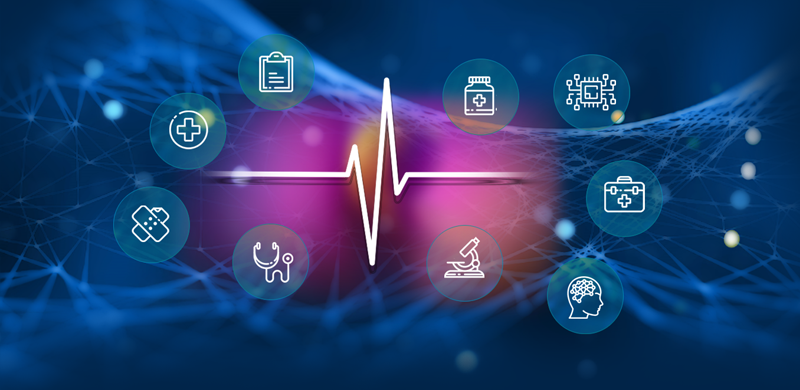The realm of healthcare has undergone a remarkable transformation in recent years, with the convergence of artificial intelligence (AI) and telemedicine revolutionising the way healthcare is delivered and accessed. As we approach 2024, the synergy between AI and telemedicine is reshaping the landscape of healthcare, offering unprecedented opportunities for improved patient care, diagnosis, and treatment. Several research reports from prominent institutions and healthcare organisations elucidate the accelerating integration of AI into telemedicine, shaping a promising future for healthcare globally.
Telemedicine’s Evolution and Adoption
Telemedicine, once a novel concept, has evolved significantly, transcending geographical barriers and enabling healthcare access remotely. According to the ‘Global Telemedicine Market Report’ published by Market Research Future, the telemedicine market is projected to witness substantial growth by 2024, with a compound annual growth rate (CAGR) of over 16%. Institutions like the Mayo Clinic and Johns Hopkins Medicine have been pioneers in integrating telemedicine into their healthcare systems, amplifying patient access to specialist consultations and follow-ups, especially in remote areas.
AI’s Role in Telemedicine Advancement
The integration of AI into telemedicine has been a game-changer. AI algorithms and machine learning models have augmented the efficiency and accuracy of diagnostic procedures, aiding healthcare professionals in making informed decisions. A report by McKinsey & Company titled ‘The Future of Healthcare: How AI and Telemedicine Are Shaping the Industry’ highlights the impact of AI in streamlining telemedicine services. Companies like IBM Watson Health and Google Health have been instrumental in developing AI-powered tools for analysing medical imaging and providing diagnostic insights.
Improved Diagnostics and Personalised Treatment
AI algorithms, trained on vast datasets, have demonstrated exceptional capabilities in interpreting medical images such as X-rays, MRIs, and CT scans. Research conducted by Massachusetts General Hospital, as cited in the ‘AI in Healthcare’ report by Deloitte, showcases how AI-powered diagnostic systems have exhibited accuracy rates comparable to or even surpassing those of human radiologists. This advancement not only expedites diagnosis but also allows for early detection of diseases, thereby enabling timely interventions and personalised treatment plans.
Enhanced Patient Engagement and Monitoring
The convergence of AI and telemedicine has bolstered patient engagement through remote monitoring and personalised healthcare management. Institutions like Cleveland Clinic and Kaiser Permanente have integrated AI-driven applications into telemedicine platforms, enabling patients to monitor vital signs, track medication adherence, and receive personalised health recommendations. The ‘Telehealth Impact Study’ conducted by the American Telemedicine Association underscores how AI-enabled telemedicine solutions have improved patient satisfaction and outcomes.
Challenges and Ethical Considerations
Despite the promising advancements, the integration of AI into telemedicine poses certain challenges and ethical considerations. Privacy concerns, data security, and the ethical use of patient data remain critical issues. Reports from the World Health Organisation (WHO) and the American Medical Association (AMA) emphasise the importance of establishing robust frameworks to ensure patient confidentiality and ethical AI deployment in telemedicine practices.
Future Prospects and Collaborative Initiatives
Looking ahead to 2024 and beyond, collaborative efforts between tech giants, healthcare institutions, and regulatory bodies are crucial. Initiatives like the partnership between NVIDIA and leading hospitals for AI research, as mentioned in NVIDIA’s healthcare research reports, highlight the collaborative strides made to advance AI-driven healthcare solutions. Moreover, the integration of AI with emerging technologies like 5G networks is anticipated to further enhance telemedicine capabilities, facilitating real-time remote consultations and surgeries.
Conclusion
In conclusion, the integration of AI into telemedicine stands as a pivotal advancement poised to reshape the healthcare landscape in 2024. Research reports from reputable institutions and organisations corroborate the transformative impact of AI-powered telemedicine on diagnostics, personalised treatment, patient engagement, and monitoring. However, addressing challenges related to privacy, data security, and ethical considerations remains imperative. Collaborative efforts and ongoing research endeavours underscore a promising future where AI-driven telemedicine continues to enhance healthcare accessibility and quality on a global scale.


